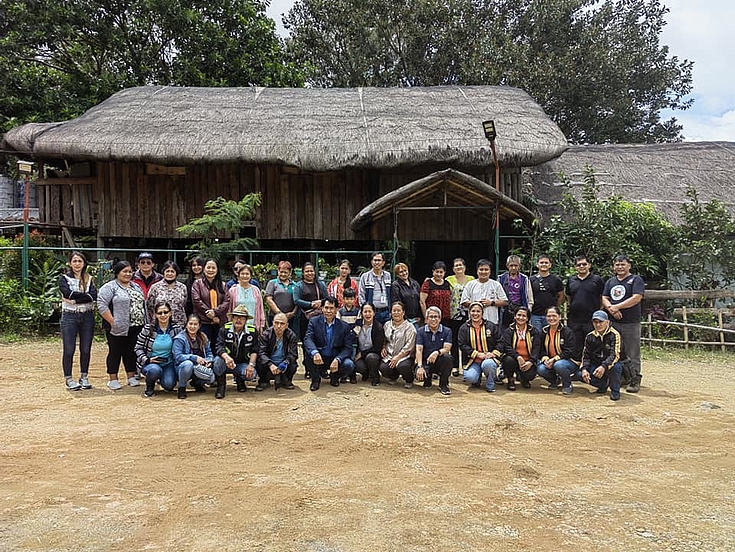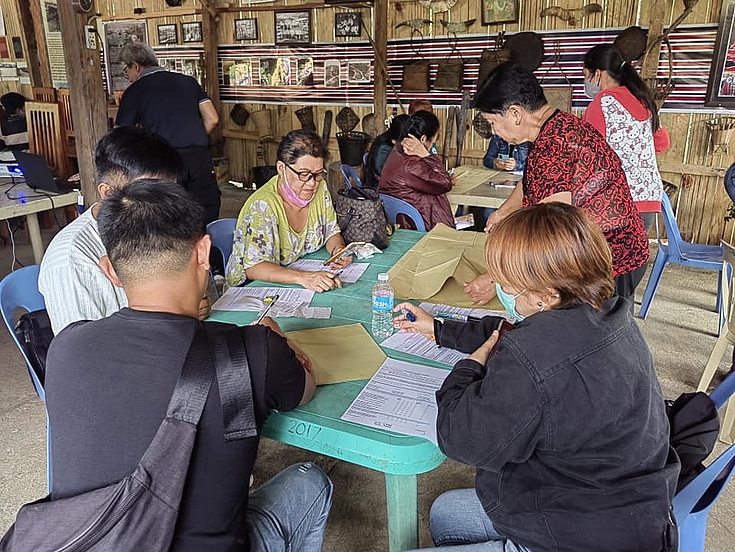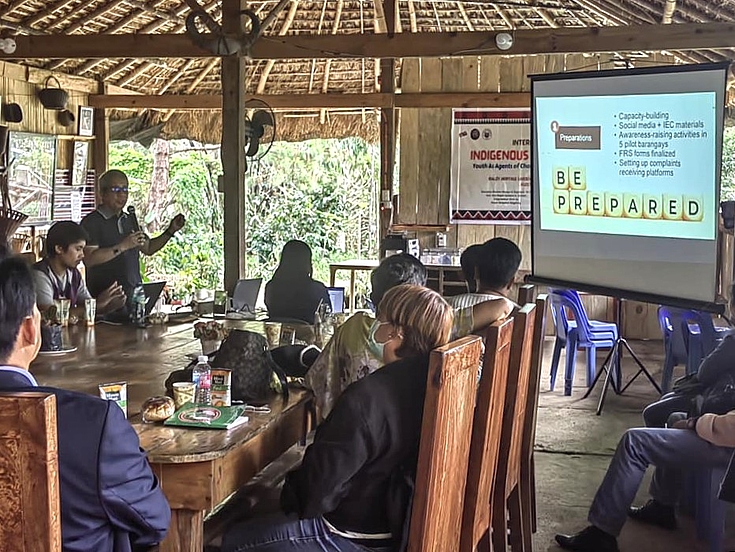Community-based Dialogues Project (CBD)
Awareness-raising Seminar on Piloting the Feedback and Referral System in the Cordillera region
CHR-CAR
This activity recognizes the need for continued engagement and deeper comprehension to ensure that the FRS becomes an integral part of the local discourse on human rights and accountability. It also enabled the participants to learn how to effectively use the FRS to report incidents, track their progress, and contribute to promoting human rights protection and accountability.
It was attended by about 40 participants representing the 5 pilot barangays, Baguio City LGU (Mayor’s office and Legal office), Barangay Human Rights Action Teams Federation (BHRAcT), civil society organizations (CSOs), Commission on Human Rights-Cordillera Administrative Region (CHR-CAR), Alternative Law Groups (ALG), and Hanns Seidel Foundation/Germany (HSF).
Mr. Rene Clemente, ALG Program Officer presented an overview of the CBD program and the context in the development of the FRS. He shared the purpose/objectives of the FRS, guiding principles and important considerations, FRS flowchart, and promoting awareness on the FRS. He highlighted the guiding principles and some important considerations in complaint management and implementation of the FRS.
After sharing the requisites for an effective FRS, he noted the benefits and opportunities of implementing an effective FRS such as providing a safe space for complainants/victims/witnesses to report HR-related issues, and allowing information on actions taken back to them; with the envisioned FRS, complainants will gain more confidence in reporting HRVs with increased trust that there are remedies to HR-related issues.
CHR-CAR
He also presented existing systems in reporting and monitoring HRVs thru the CHR, PNP and CSOs, respectively. He cited some challenges such as lack of trust and coordination between parties (security sector and CSO); no clear timeline for the reporting and monitoring of HRV complaints; no automatic updates if not followed up; the information for reporting HRVs is not readily available (even though the agencies say they are posted online); process of case build-up, evidence gathering, identification of witnesses and perpetrators are time-consuming; and complainants do not have a readily-accessible reporting mechanism-the current mechanism is too tedious (many requirements), and is not readily available/ accessible, among others.
Thereafter, he presented the steps in the FRS and process flowchart. The steps are as follows: (1) receive complaint; (2) assess complaint; (3) refer complaint to appropriate agency for investigation; (4) follow up; (5) resolve (or investigate); (6) respond to complaint/send feedback; (7) learn (CHR with CSOs will try to capture trends, causes, impact on community); and (8) report (CHR will make report every 6 months and annually). He then explained the forms to be used for the FRS.
During the open forum, the City Legal Officer, Atty. Hannah Calitong, stated that the piloting of the FRS in Baguio City will help the BHRAcT to be a regular function of government at the barangay level, and respect the barangay justice system. She expressed optimism the BHRAcTs will do its best to act on HRV complaints at the fastest time possible in coordination with CHR-CAR and Baguio City Human Rights Task Force (Barangay Human Rights Committee currently has a timeline of 60 working days and 30 working days extension, if necessary). It was mentioned to form legal advisers (LGU, CHR, ALG) to help the pilot barangays and find ways to engage the youth.
CHR-CAR
In promoting awareness on the FRS, Mr. R. Clemente shared the following ideas: information/ awareness campaigns; engage community leaders, schools and universities; partnership with human rights CSOs; educational activities (e.g., training, round-table discussions); multi-lingual materials; collaborate with media/use of social media/mobile apps and online platforms; incorporate user testimonials; collaboration with local partners (LGU, CSOs, media); regular updates/communication; feedback loops; empower grassroots advocates; launch events (e.g., HR week).
A workshop was conducted to finalize the FRS implementation plans of the pilot barangays. The groups presented their outputs in plenary.
The participants shared their insights on the conduct of the activity, viz: activate BHRAC and RoL program of CHR in cooperation with DILG, expect more questions about FRS as it is being implemented, start small and learn in the process, share updates between and among pilot barangays, conduct regular meetings, all BHRAcTs should be functional, and share all resolutions with the federation.
In summing up the activity, he asked the participants to start implementing the FRS, study the FRS Handouts, print the FRS forms, launch community-awareness-raising campaigns, boost social media presence, conduct internal training of involved local stakeholders (CHR, BHRAcT, brgy officials, CSOs) in using the FRS, create complaint receiving stations (online, dropbox, hotline, etc.), as well as form a group chat to consult, and share information and experiences in implementing the FRS. He informed them that an assessment of the FRS will be conducted after 3 months.



